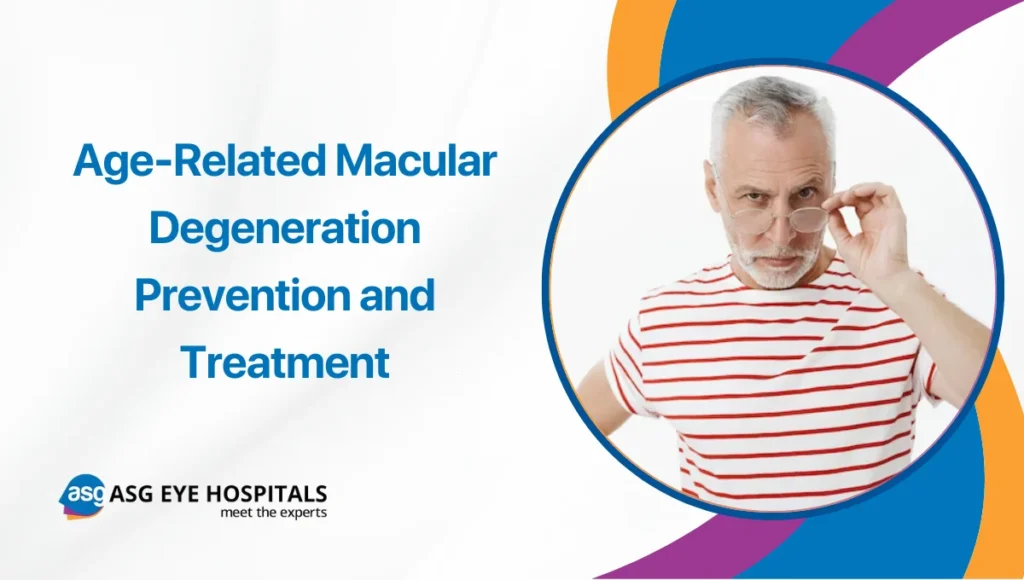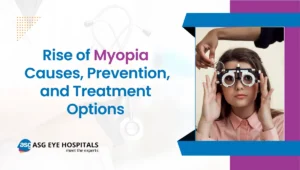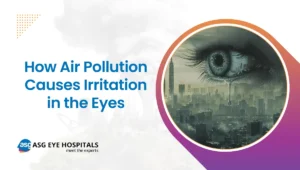One of the most common causes of vision loss in older patients is age-related macular degeneration (AMD), an eye disease where the macula degenerates. It is the leading cause of vision loss in older adults and involves the deterioration of the macula, the central part of the retina responsible for sharp, central vision. While AMD can significantly impact quality of life, several strategies have proven effective in both preventing and managing the disease. Here is a comprehensive guide on the best proven strategies for prevention and treatment of age-related macular degeneration.
What is Age-Related Macular Degeneration?
AMD affects the macula and causes problems with your vision, resulting in blurry vision or blind spots in the center of your vision that make it hard to see fine details. There are two main forms of AMD:
- Dry AMD: This is more common and is where the macula becomes thin and ages gradually. This type progresses slowly and is often less severe.
- Wet AMD: This is the more aggressive and less common form of wet AMD, characterized by rapid growth of irregular blood vessels under the retina, which leak and are associated with rapid vision loss. There is a need for urgent treatment of such an aggressive process.
AMD Prevention Strategies
- Healthy Diet:
- Antioxidants: A diet rich in antioxidants like vitamins C and E will help protect the retina from damage. Berries, oranges, and leafy greens are excellent sources.
- Lutein and Zeaxanthin: These carotenoids are immensely concentrated in the macula and can filter out harmful blue light. Spinach, kale, and eggs are some of the rich sources of these nutrients.
- Omega-3 Fatty Acids: Omega-3s found in fishes like salmon and as supplements have been shown to promote retinal health and even lower inflammation.
- Regular Eye Exams: Early detection is of the essence. Regular eye exams aid in detecting the condition before extensive vision loss has occurred. If you are over 50 or have a family history of AMD, your eyes should be checked annually.
- Quit Smoking: Smoking is associated with an increased risk for AMD. Stopping reduces not only the risks to general health but also to risks of developing AMD.
- Sun Protection: UV light exposure can increase the risk of AMD. Wearing sunglasses that block ultraviolet UV protection and a wide-brimmed hat to protect your eyes from harmful rays is a good idea.
- Maintaining a Healthy Weight and Blood Pressure: Obesity and high blood pressure are major factors that worsen the severity of AMD. Maintaining a healthy weight through a balanced diet, good exercise, and healthy blood pressure are critical preventive measures.

AMD Treatment Options
Dry Age-Related Macular Degeneration:
- AREDS Formula: The AREDS reports that specific high-dose formulations of antioxidants, including vitamins C and E, associated with zinc and copper, have been shown to reduce the progression of dry AMD. Supplements that are based on this formula are largely recommended.
- Dietary and Lifestyle Modifications: Keeping a well-balanced diet rich in nutrients for eye health, along with regular exercise, helps manage symptoms and slow progression.
Wet Age-Related Macular Degeneration
- Anti-VEGF Injections: This is the most common line of treatment for wet AMD. It consists of injections of anti-vascular endothelial growth factor drugs. Lucentis, Eylea, and Avastin are medications that reduce the growth of abnormal blood vessels and prevent further leakage.
- Photodynamic Therapy: A light-sensitive drug is introduced into the bloodstream. It gets activated by a laser to destroy abnormal blood vessels. This is used less and less these days because of the efficacy of anti-VEGF treatments.
- Laser Therapy: This is less common today, but still used as a method to identify and destroy abnormal blood vessels. It is usually used in advanced cases where anti-VEGF therapy does not work.
Emerging Therapies:
- Gene Therapy: It involves research on gene therapy that would try to intervene in the actual genetic basis of AMD, and hence provide long-term solutions.
- Stem Cell Therapy: Research has been undertaken to use stem cells to replace damaged retinal cells and restore vision.
- Retinal Implants: Development of devices that help the vision of patients affected with advanced AMD is underway; however, most of these are still in the experimental stages.
Living with Age-Related Macular Degeneration
- Low Vision Aids: Simple interventions, including the provision of such low vision aids as magnifying glasses and large print books, and adjustments in the text size in electronic devices, can substantially improve the quality of life in those who suffer from tremendous vision loss.
- Vision Rehabilitation: Vision rehabilitation programs offer both training and resources to enable adaptation to vision loss. Orientation and mobility training, adaptive techniques, and support groups are a few of the services provided by many of these programs.
- Support Networks: This can also help in offering emotional support and practical advice by contacting the support groups and organizations involved in working towards AMD. For example, The American Macular Degeneration Foundation and the National Eye Institute are valuable resources of knowledge and a feeling of community.
Conclusion:
Age-related macular degeneration is a challenging condition, but with a combination of proactive strategies and advancements in treatment, it is possible to cope with these conditions and minimize them on time. Some preservative measures, such as a good diet, regular eye check-ups, and smoking cessation can prevent these conditions. People diagnosed with age-related macular degeneration must visit a retina eye surgery specialist, various treatments can be enlisted to slow disease development and save vision. By staying informed and proactive, individuals can manage AMD effectively and maintain their vision and quality of life well into their later years. Regular consultations with eye care professionals are essential for personalized guidance and timely intervention.



